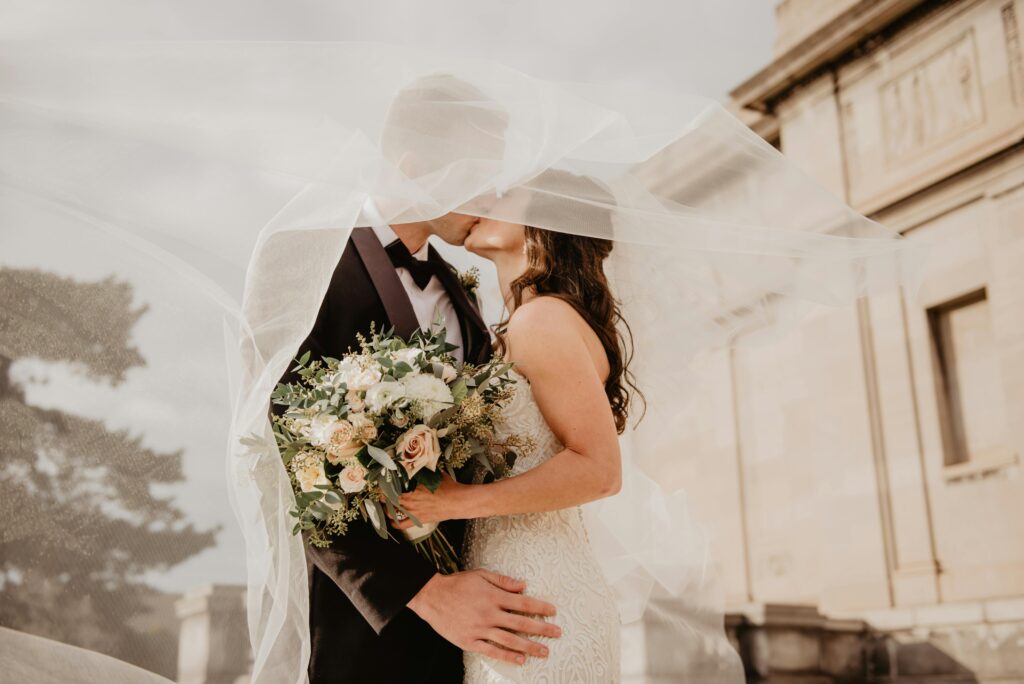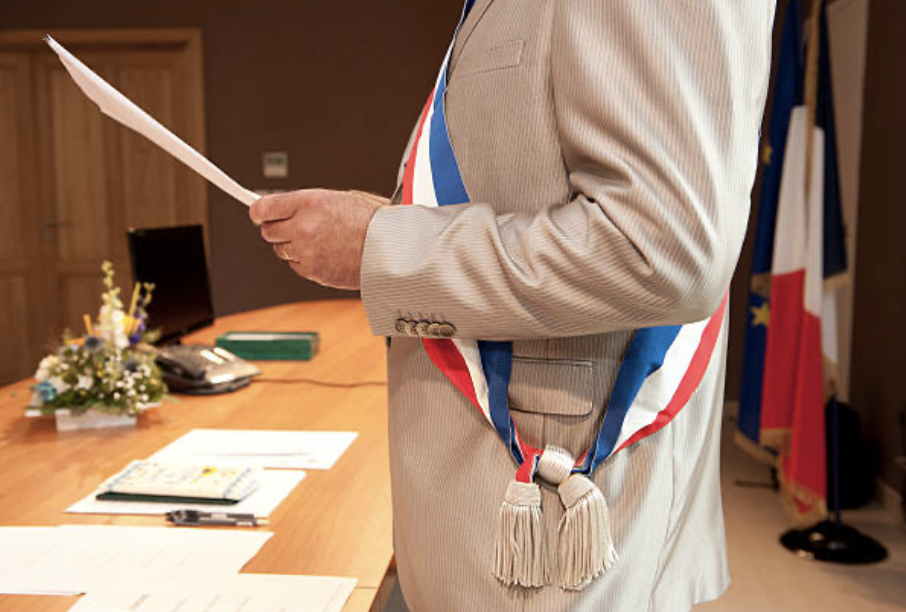
The civil ceremony is a key step in making your marriage official. Whether simple or elegant, intimate or more festive, it’s essential to be well prepared to make it a truly memorable moment. Discover everything you need to know to ensure your civil wedding is well organized — chic, meaningful, and unforgettable.

The civil ceremony at city hall is an essential step to officially unite two people. It is required before any religious or symbolic ceremony and is accessible to all couples, regardless of religion or beliefs.
In the past, traditional weddings often took place over a single day — starting with the civil ceremony, followed by the religious service and the reception. Family and guests would attend every part of the celebration. Today, however, many couples choose to spread out the events, making the civil ceremony a meaningful occasion in its own right. Both practical and on-trend, this approach allows for more flexibility with city hall schedules — and a chance to celebrate love twice.
More and more couples are choosing a civil wedding for its authenticity and simplicity. It offers a chance to celebrate their union in an intimate setting, surrounded by loved ones. While it’s the only legally required step, many choose to make it unique with personal touches — thoughtfully chosen decor, meaningful readings, or vows that reflect who they are. By focusing solely on this ceremony, they reduce the pressure and free up their budget for what truly matters to them — an outfit they love, a genuine moment, and a celebration that feels like them.



The simplicity of a civil wedding is a perfect choice for couples who wish to commit to their union in a discreet and meaningful way. It also allows them to plan a more festive reception later on, often following a religious or symbolic ceremony. This two-part approach is also a practical solution, especially given the limited availability of time slots at city halls.
Before the ceremony, you must first take care of the administrative formalities. You will need to submit a complete file to the town hall where you wish to marry, which must be located in the municipality of residence of the soon-to-be spouses or their parents. This file includes your identity documents, proof of residence, and birth certificates. For witnesses, you are required to choose at least one, and you can have up to two each. Their role is mainly symbolic, but they remain essential to officialize the union. Choosing your witnesses therefore requires some thought, whether based on practical ties or bonds of the heart.
The soon-to-be spouses set the date and time of their ceremony according to the available slots offered by the town hall. These slots can be scarce, especially during the wedding season when demand is high. To avoid disappointment, many book their appointment several months in advance, particularly if they aim for a summer Saturday. This choice often influences the organization of the day. A late morning ceremony allows for a relaxed lunch and a leisurely afternoon, while an afternoon slot paves the way for a more festive evening reception.
Whether you choose a multi-step wedding or a single civil ceremony, selecting the perfect civil wedding dress is essential. Today, more and more brides opt for a simple and elegant outfit for this special moment. Break away from traditional wedding norms by daring to wear a short dress or a jumpsuit—perfect for combining style and comfort. Don’t hesitate to surprise your guests with an outfit that reflects your body shape, personality, and the atmosphere of your ceremony. There is a wide variety of civil wedding attire, so every bride-to-be can find the look that truly represents her and makes her shine on the big day.
Find our article dedicated to tips for choosing your civil wedding dress.

On your wedding day, the reception at the town hall is usually simple yet formal. Only the couple, their witnesses, and guests attend the ceremony held at the town hall.
First, the mayor or civil registrar reminds the couple of their rights and duties, laying the foundation for a deep commitment. Then, the bride and groom exchange their vows, sealing their promise of union before the law. Next, the rings are placed on their fingers, precious symbols of this sacred bond. Finally, signing the registers makes it official, marking the beginning of a shared life together.
The civil ceremony lasts on average between 15 and 30 minutes. Although it maintains an official tone, some town halls allow you to create an atmosphere that reflects your personality. The mayor can choose to deliver a warmer or more solemn speech, depending on your wishes. Additionally, you can add a personal touch, such as subtle decorations or soft background music. All these precious details are planned in advance to make this moment a unique memory.

The reception or meal following the civil ceremony is the moment when everyone comes together to share a drink and some bites. Whether held right next to the town hall or at the couple’s home, the focus is on simple décor, music, and a festive atmosphere. Well organized, it’s a chance to relax and enjoy quality time with loved ones before the rest of the celebrations.




